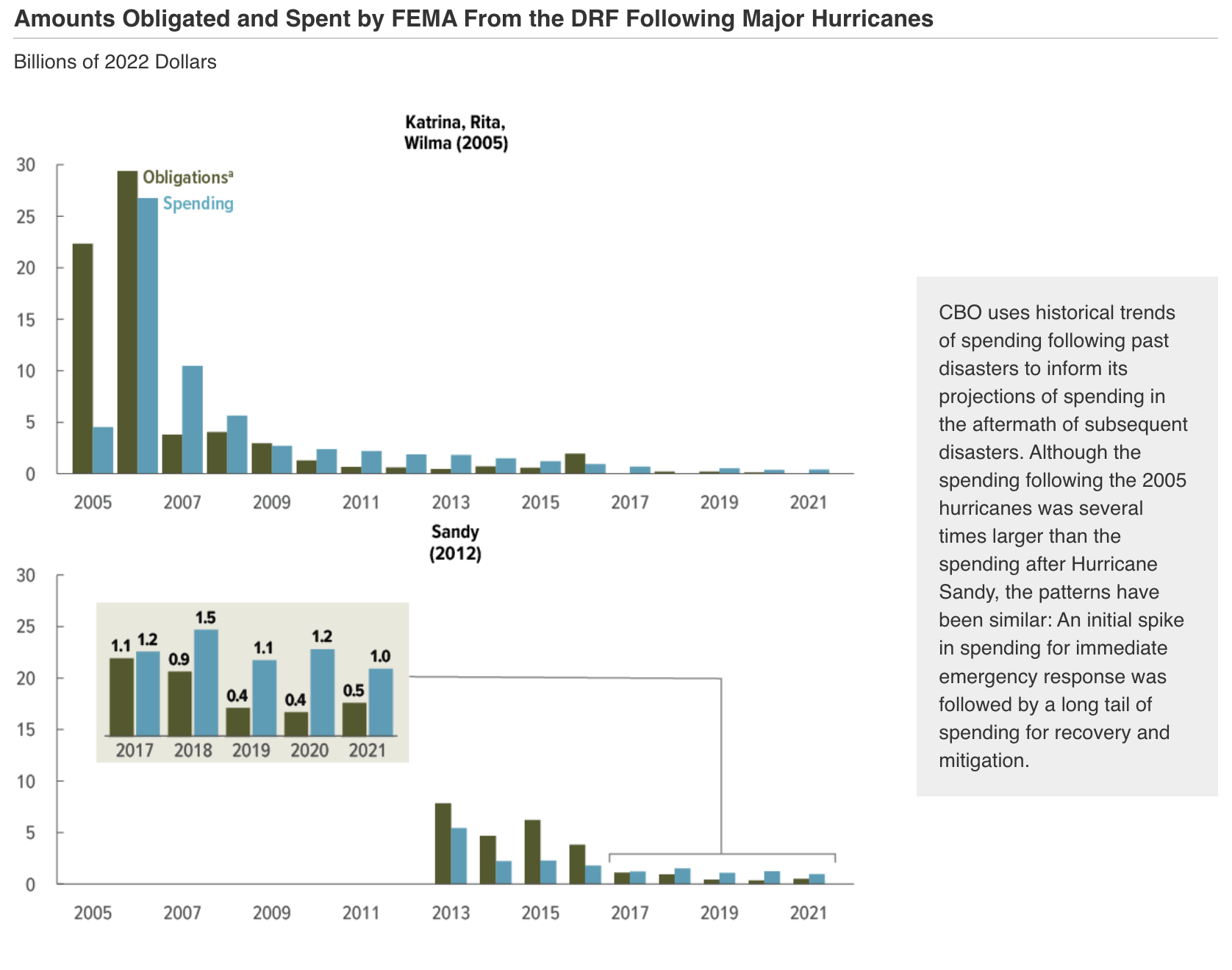The US government is writing fewer — but much bigger checks — in response to natural disasters and lawmakers should expect that trend to continue, according to a report recently released by the Congressional Budget Office (CBO).
Larger and more destructive hurricanes are the primary reason that the Federal Emergency Management Agency’s Disaster Relied Fund (DRF) needing increasingly greater injections of cash outside of its budget each year, the CBO says.
“Spending has been driven less by the number of disasters declared and more by the size and severity of individual disasters,” the report states. “Although Presidents have made more than 1,700 declarations of major disasters over the past 30 years, a small number of those disasters account for a disproportionate share of total spending.”
2005 was an “infection point” for the federal government’s disaster spending following Hurricane Katrina. According to the report, the DRF budget was a relatively modest $5 billion annual outlay for the decade prior to Katrina, but since 2005 disaster fund’s budget needs have required a $16.5 billion annual increase that were “spurred by a handful of particularly severe events (including those three hurricanes and the pandemic) and the larger appropriations provided in response."

The CBO says that Hurricanes were the largest category of DRF spending, accounting for about 44 percent of total spending between 1992–2021. After hurricanes, flooding not related to hurricanes, severe storms, wildfires, tornadoes, and earthquakes were drains on the fund.
Rather than dramatically increasing the DRF’s budget each year though the appropriations process to match the increasing risk, Congress has chosen to inject cash into the fund as disaster occur though “supplemental appropriations” on an ad hoc basis.
In fact, the reports points out that of the $381 billon budgeted by Congress for the NDF between 1992 and 2021, 75 percent of that was through one-time supplemental approbations.






